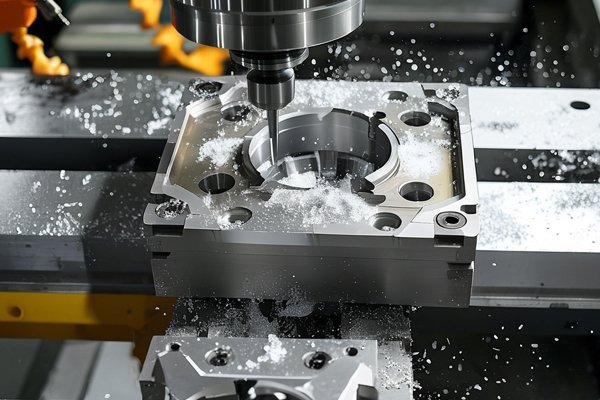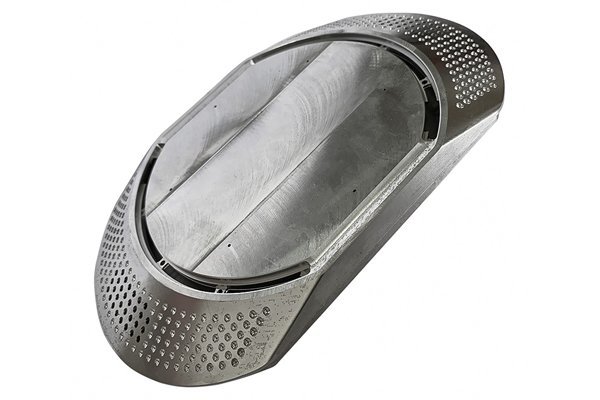Did you know that CNC machining can reduce production times by up to 75% compared to conventional manufacturing methods? This astonishing statistic highlights not just efficiency but the transformative impact of computer numerical control (CNC) technology across countless industries. In a world where precision and speed are paramount, CNC machining stands as a beacon of innovation, offering solutions that help businesses enhance their productivity and product quality.
Understanding CNC Machining
Before diving into how CNC machining enhances production, it’s crucial to understand what it is. CNC machining is a method of manufacturing that utilizes computer software to control machine tools such as drills, lathes, mills, and plasma cutters. Rather than manual operation by skilled labor, CNC machines function autonomously once programmed, allowing for increased accuracy, speed, and repeatability.
The Evolution of CNC Machining
CNC technology has roots in the 1940s and 1950s when electrical engineers began developing automated machines for industries like aerospace and automotive. Over decades, innovation in computing and technology has propelled CNC machining to its current advanced state. Today, modern CNC machines are equipped with sophisticated control systems and software, capable of executing complex tasks while adhering to stringent industry standards.
How CNC Machining Improves Production Efficiency
CNC machining enhances production efficiency through several mechanisms:
One of the standout features of CNC machining is its precision. The digital nature of CNC machines allows them to maintain tight tolerances (often within ±0.005 inches). This precision minimizes material waste and rework (the process of correcting defects), leading to significant time savings.
By streamlining the prototyping process, CNC machining allows manufacturers to develop and test prototypes quickly. The ability to make modifications without lengthy downtime enhances the R&D phase. This capability can vastly shorten product development cycles.
CNC machines often combine several machining processes into one unit. For instance, a single CNC lathe can turn, mill, and drill, which reduces the need for multiple setups. This integration minimizes the transition time between different operations, further enhancing production speed.
CNC systems can automatically change tools during operation, optimizing machining time while reducing operator involvement. This automated tool management ensures that the most effective tool is utilized at all times, further enhancing efficiency.
Unlike human operators, CNC machines can run continuously, requiring short breaks for maintenance and tool changes. This “lights out” manufacturing—where machines operate autonomously overnight or on weekends—maximizes production capabilities without additional labor costs.
The digitized nature of CNC machining allows for real-time monitoring and analysis. Operators can leverage data analytics to evaluate machine performance and assess operational efficiencies, leading to informed decisions that drive continuous improvement.
CNC machines can be reprogrammed quickly to produce different parts and products. This versatility makes them ideal for small-batch production runs, minimizing setup times and production line changes.
Enhancing Product Quality through CNC Machining
While efficiency is crucial, the quality of the manufactured product cannot be overlooked. Here are several ways that CNC machining guarantees superior product quality:
CNC machines can reproduce parts with exact specifications repeatedly. This consistency ensures that each piece meets quality control standards, reducing variances that are often seen in traditional manufacturing.
CNC machining allows for the creation of intricate designs and complex geometries that would be challenging or impossible to achieve manually. This capability is particularly essential in industries such as aerospace and healthcare, where part intricacies can be critical.
Most CNC systems can be integrated with quality control software that monitors the machining process. This integration can involve automated measurements and adjustments during production, helping maintain or improve quality throughout the manufacturing cycle.
CNC machining enables manufacturers to utilize a broader range of materials, increasing the performance and longevity of products. When coupled with proper data and material science knowledge, CNC machining can lead to product innovations tailored to market needs.

High-quality surface finishes—often a competitive requirement—can be achieved effectively through specialized CNC processes. Techniques like laser cutting, EDM (Electrical Discharge Machining), and advanced milling can produce fine finishes that require minimal post-processing work.
By employing materials tailored for specific conditions (e.g., high-temperature environments, corrosive substances), CNC machining helps produce durable end-products. The precision ensures that these engineered materials perform reliably.
Case Studies: CNC Machining in Various Industries
In the aerospace sector, CNC machining is fundamental due to compliance with strict safety regulations. With the ability to manufacture lightweight, high-strength components like turbine blades and fuselage structures, CNC machining plays a pivotal role in enhancing efficiency and safety.
Automakers use CNC machining for precision-engineered components, from engine blocks to intricate gear housings. The integration of CNC can facilitate shorter product development times, enabling companies to respond quickly to market demands.
In the medical device industry, precision and cleanliness are critical. CNC machining produces complex implants and surgical instruments to exact specifications, which improves the quality and safety of medical procedures.
CNC machining streamlines the production of lightweight, durable housing for electronics while enabling the manufacture of complex circuit boards. Enhanced production speeds meet the demands of the rapidly evolving technology sector.
For companies involved in product development, CNC machining opens the door to rapid prototyping, allowing them to produce and refine designs quickly. This agility boosts creativity and innovation while ensuring efficient market delivery.
Future Trends in CNC Machining
As CNC technology advances, so do the opportunities for improving production efficiency and quality. Emerging trends include:
This innovative machining technique allows for the simultaneous movement along five different axes, providing unparalleled complexity and precision in part manufacturing.
Combining CNC machining with additive manufacturing can create hybrid production systems, enhancing material properties and design possibilities.
AI can optimize machining processes by analyzing historical performance data and making real-time adjustments, paving the way for true autonomous production.
As industries seek eco-friendly practices, CNC machining offers pathways for increased use of renewable materials and energy-efficient processes.
Digital advancements will likely facilitate remote monitoring and predictive maintenance for CNC machines, enhancing uptime and production reliability.
CNC machining stands at the forefront of manufacturing efficiency and quality enhancement. From automated precision to the ability to create complex parts, its transformative capabilities are reshaping industries from aerospace to consumer goods.
As we’ve explored, the integration of CNC machining not only streamlines production but also elevates product quality—providing businesses with a significant competitive edge. Harnessing technology for automation, flexible manufacturing, and data-driven decision-making, companies can optimize their operations while meeting dynamic market needs.
In a rapidly changing world, investing in CNC machining technology is not just a choice; it’s a necessity for innovation and excellence. For manufacturers looking to enhance efficiency and elevate product quality, CNC machining offers profound, far-reaching solutions worthy of exploration and implementation. The time to embrace this technology is now—it’s essential for staying relevant in an increasingly competitive landscape.






